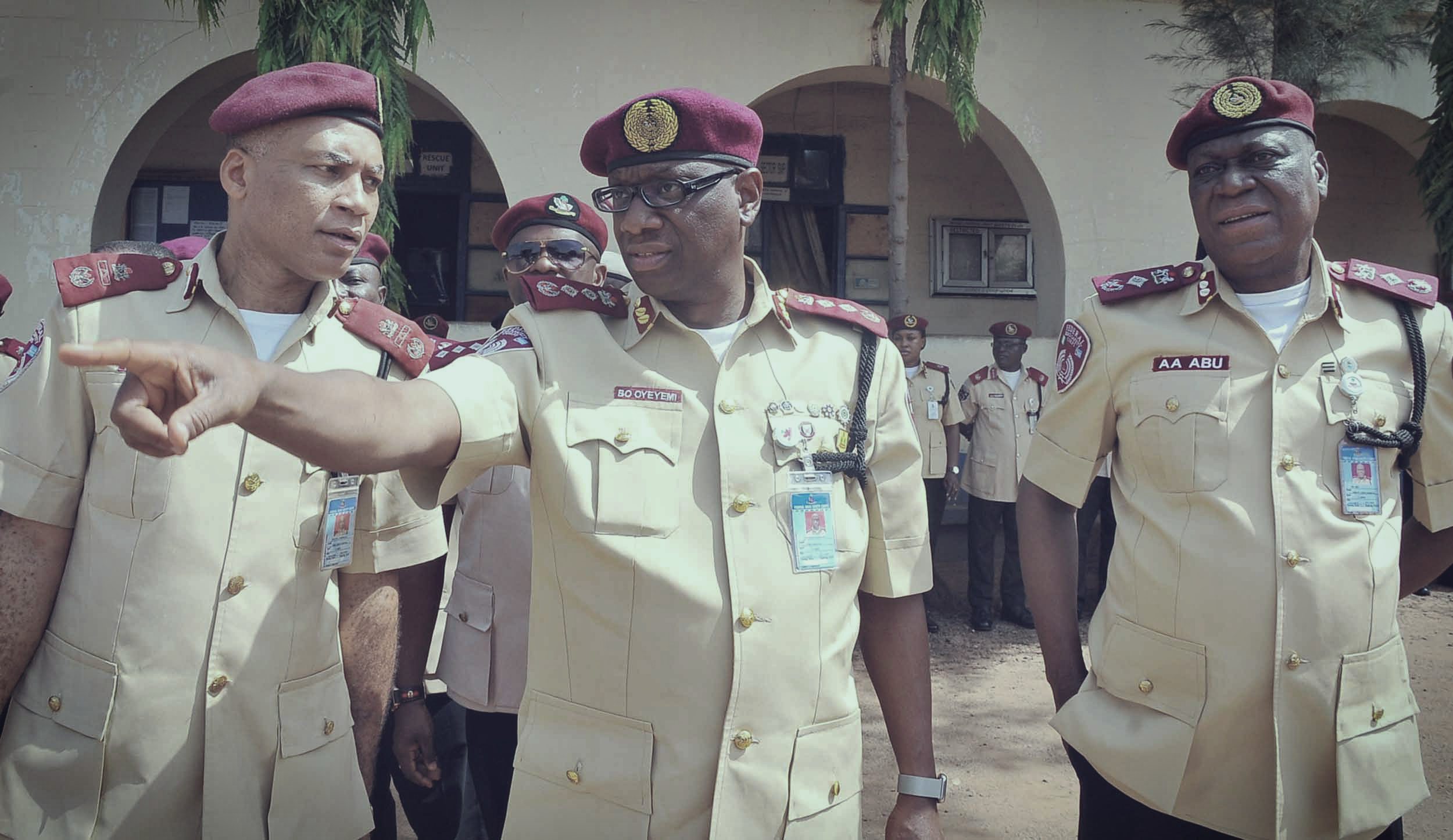The Federal Government’s (FG) plan to arm officers of the Federal Road Safety Commission (FRSC) is a misplaced priority. At a time when most security agencies in Nigeria have earned notorious reputations for brutality and extrajudicial killings, an armed FRSC officer is the least Nigerians want on their roads. Recently, the Secretary to the Government of the Federation (SGF) mentioned that officials of the FRSC are constitutionally entitled to carry arms. While this is validly in accordance to Section 19 of the FRSC Establishment Act, it is, however, expedient for Nigerian lawmakers to swiftly review the provisions of that law before the proposed reinforcement of FRSC officials with arms is implemented.
The Federal Road Safety Corps on Friday said 72 officers and men of Kaduna Zonal Command of the corps were killed on duty by reckless drivers in 2018. – Punch Nigeria
Arming FRSC officials—reputed for killing or injuring ‘stubborn’ drivers during hot chases—would only create a new set of tyrants on the road, making them more brutal in their enforcement of the law and more audacious in extorting commuters. Besides, it will likely give room for another misappropriation of arms procurement funds, as obtained in the $2bn arms procurement scandal of the Goodluck Jonathan’s administration, and dampen the country’s economy.
Nigeria’s Obsession with Arms Impedes Economic Growth
Arming FRSC implies that Nigeria will be incurring another huge expenditure on the importation of firearms. World Bank’s statistics reveal that between 1999 and 2017, Nigeria has spent over $1 billion on arms importation. But the World Bank has warned that “high military expenditures for defense or civil conflicts burden the economy and may impede growth.”
Nigeria’s economic shortfalls are not unconnected to its obsession with militarizing the country at the expense of providing infrastructures and investing in sectors that will drive economic growth like power and transportation. And this has often led to huge embezzlement and misappropriation of funds. The $2bn arms procurement scandal in 2015, also known as “Dasukigate,” is an example of how monies meant for arms procurement could be easily siphoned and not used for their intended purposes, thereby further crippling the economy.
Sadly, in 2018, FRSC lost 72 of its officials to reckless drivers in the central-north region of the country alone. Nigerians commuters do not often comply with the basic road regulations but crisscross the roads with aggression instead. This usually leads to a fierce chase by FRSC officers in other to traffic law violators. Some of these chases often end in the loss lives on either end. Ensuring the protection of lives for the road safety officers is important just like it is with the lives of ordinary Nigerians. But arming the FRSC officers will only increase the possibility of accident or harassment.
What To Do?
Alternatively, the effectiveness of the FRSC can be enhanced if the streets and federal highways are well-illuminated. Working traffic lights on roads can help, too. The same as Closed Circuit Television. These improvements will help drivers and assist the FRSC in identifying traffic law violators. Confrontations between FRSC officers and drivers will drastically drop and cases of highway pursuit will reduce.
Human rights advocacy groups and the entire public should embark on rigorous campaigns to kick against the legalization of arms for the FRSC officials as provided by Section 19 of the commission’s Establishment Act. Rather than fuel crisis when free movement should be guaranteed for the citizens, the Federal Government FG should provide adequate road safety facilities to reduce frequently acrimonious drivers-corps contacts.
Nigerians have had enough of the brutality from security operatives. FRSC officers should not join the list.
Muneer Yaqub is a Writing Fellow at African Liberty, a Nigerian social commentator, and journalist. He is a student of Microbiology at the Usmanu Danfodiyo University, Sokoto, Nigeria. He can be reached on Twitter via @elmunir5.
Photo Credit: Daily Post Nigeria

